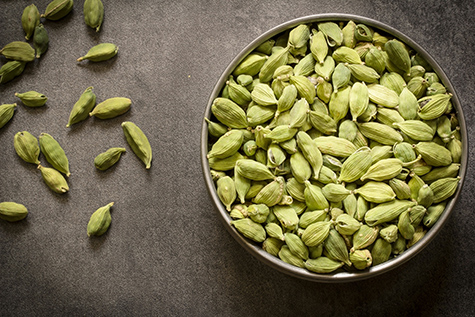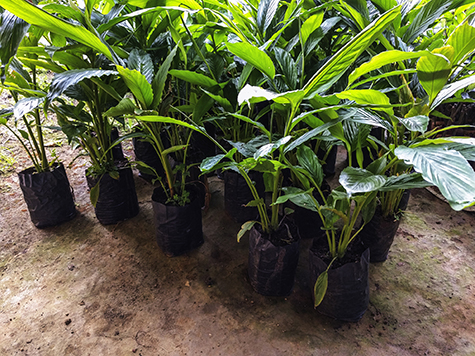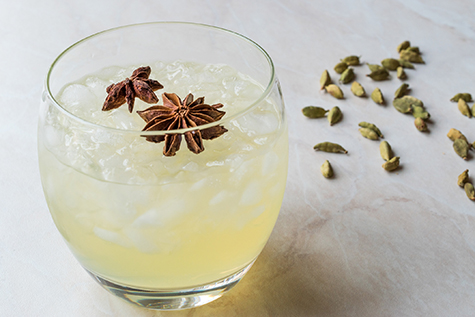Cardamom: Is It the New Miracle Spice?

Move over turmeric, cardamom is gaining attention for both culinary and health properties. Native to the mountains of India, Pakistan, Burma/Myanmar and Sri Lanka, this pod-containing plant yields cardamom spice and essential oils as well.
A sweet spice, cardamom can be used in a variety of dishes and was important in world trade for centuries. Medicinally, cardamom is used for:
- Setting the GI including treating nausea, vomiting, constipation, diarrhea and IBS
- Fighting colds and other viruses that cause fevers or a cough
- Antibacterial properties
- Fighting fungal infections
- Liver and gallbladder support
- Cardiovascular support including treating high blood pressure
- Anxiety, tension and stress
Cardamom has many uses in the kitchen and when used in the amounts found in food, it’s on the generally recognized as safe (GRAS) list. Any way you incorporate cardamom as part of the diet is generally safe. Commonly, you’ll find it used in curry, coffee and tea like chai, desserts and cake. You’ll find it used in Middle Eastern and Indian cuisine though it is so versatile, you can add it to many different recipes, both sweet and savory.
The strongest evidence on the benefits of cardamom is in calming the gut. It has been used specifically to support postoperative nausea and vomiting. There is also some promising research on using cardamom to treat high blood pressure. Like other herbs, it exhibits antimicrobial, antibacterial and antioxidant properties.
In the lab setting, cardamon has been shown to exhibit powerful anti-cancer effects, stopping the formation of DNA changes which power abnormal cell growth. Cardamom is often found in conjunction with other herbs when taken in supplement form and is used to relieve anxiety, tension and stress. Interestingly, there has been research done on how to increase the absorption of cardamom in the body and studies have shown that black pepper is supportive here whichis very similar to turmeric, also enhanced by black pepper. Research specific to cardamom and black pepper found a synergistic effect that promote anti-cancer activity.
Studies show that cardamom is used short term in doses up to 1.5 grams twice per day. The good news is that there aren’t any adverse side effects reported so it appears generally safe to use. There aren’t any reported interactions with drugs or other herbs and supplements at this time. Keep in mind that it hasn’t been proven safe for use when pregnant or breastfeeding (in supplement form). Using concentrated sources of cardamom in supplement form can also cause gallbladder contraction so use caution if you have problems there.
Whether you use cardamom in your next recipe or experiment with it as a supplement or essential oil, it could have some powerful health benefits. Have you had any success with using cardamom this way?
Resources
Sengottuvelu S. Cardamom (Elettaria cardamomum Linn. Maton) seeds in health. InNuts and seeds in health and disease prevention 2011 (pp. 285-291).
Majdalawieh AF, Carr RI. In vitro investigation of the potential immunomodulatory and anti-cancer activities of black pepper (Piper nigrum) and cardamom (Elettaria cardamomum). Journal of Medicinal Food. 2010 Apr 1;13(2):371-81.
Natural Medicines Database. Cardamom. https://naturalmedicines.therapeuticresearch.com/databases/food,-herbs-supplements/professional.aspx?productid=614. Updated 3/1/2018. Accessed 7/18/18.


